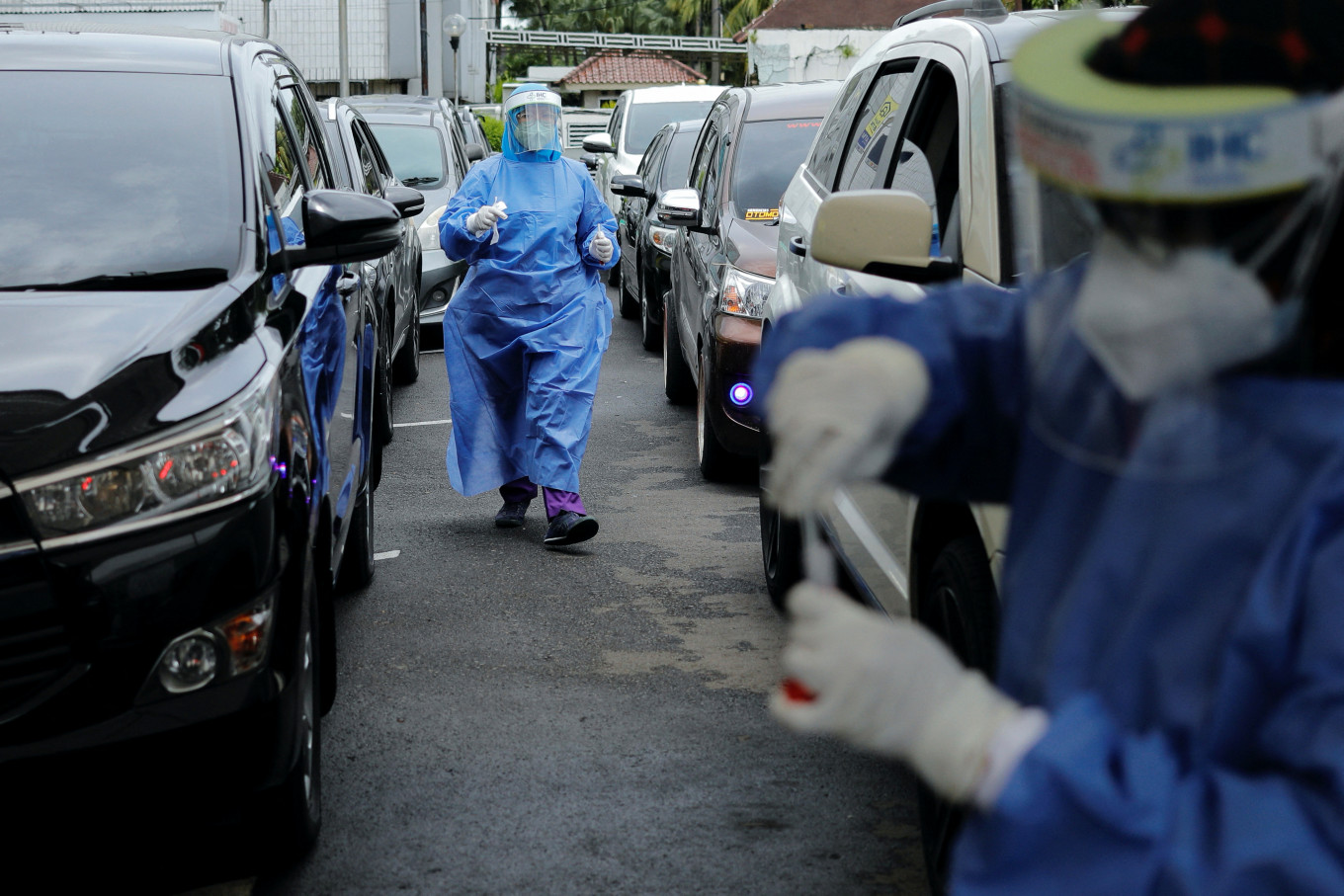Indonesia sees high prevalence of Long COVID, study shows
Symptoms lasted for up to three months after recovery.
Change Size

A
recent study suggests that 66 percent of COVID-19 survivors in Indonesia experience persistent symptoms long after they tested negative for the coronavirus, greater than the estimated rate of global prevalence of 43 percent.
The study, which was published in the peer-reviewed infectious-diseases journal, GERMS, was the first to investigate the phenomenon widely identified as Long COVID in Indonesia.
It was conducted in January of last year, shortly after the country experienced its first wave of COVID-19 infections fueled by the spread of the virus’ Alpha variant. The study involved 385 respondents from across the archipelago.
The most common symptoms reported by the survivors, according to the research, were prolonged fatigue (29 percent), coughing (15 percent) and muscle pains (11 percent). Some patients also experienced shortness of breath, headaches, joint paints, heart palpitations, sleep disturbance and brain fog/loss of concentration.
These symptoms lasted for up to three months after the patients tested negative for the virus, greatly impairing their quality of life.
Around one-third of Long Covid patients reported suffering from anxiety and depression, and around one-fourth experienced pain and discomfort.
The study found that the risk of Long Covid is significantly greater in patients with preexisting health conditions and that they suffer more severe symptoms, especially pneumonia.
Read also: Two years of COVID-19: Three waves, three jabs and copious curbs
Old age, nutritional status, type of care and need for oxygen therapy are also associated with a greater risk of persistent COVID-19 symptoms.
Increased risk
Even for those without comorbidities or patients who only experienced mild COVID-19 symptoms, the risk of getting Long Covid increases each time they contract COVID-19, according to another recent study.
The United States study, published earlier this month but still awaiting peer review, revealed that each round of COVID-19 reinfection increases a patient’s risk of developing more severe symptoms and Long Covid, regardless of their vaccination status.
The research analyzed data from 257,427 participants in the US who contracted COVID-19 only once and 38,926 participants with two or more SARS-CoV-2 reinfections.
It suggested that those with reinfections had a higher risk of mortality, hospitalization and adverse-health outcomes, with symptoms lasting up to six months after contraction.
Lead-researcher Ziyad Al-Aly said that it was possible that the first infection may have weakened some organ systems and made people more vulnerable to health risks when they get a second or a third infection.
The study findings highlighted the importance of continued vigilance against COVID-19, especially considering the fact that Omicron, the most commonly circulating coronavirus variant in the world, is known to be better at evading the immunity offered by vaccines or natural infections compared to the original strain of COVID-19.
Managing symptoms
The research on Indonesia echoed previous estimates by the Health Ministry and are higher than the World Health Organization’s (WHO) global findings, although options for post-infection treatment remain scarcely available.
The ministry has said that more research is needed, including to set up a workable aftercare-funding solution.
Epidemiologist Dicky Budiman of Griffith University said Indonesia was at risk of experiencing “a tsunami of Long Covid”, due to the fact that usually only survivors in big cities are able to report persistent symptoms to medical professionals, which in turn leads to many post-acute COVID-19 cases going unreported.
“I think the state hasn’t done enough to mitigate the impact of Long Covid,” Dicky told The Jakarta Post on Thursday.
“At this point, it’s very important for the government to educate the public about Long Covid and the importance of preventing COVID-19 reinfection, both through COVID-19 health rules and vaccination.”
He said the government should also set up rehabilitation centers for COVID-19 survivors and ensure that people with long-haul symptoms could keep their jobs during what could be an extensive recovery process.
According to the Health Ministry’s COVID-19 management guidelines published in February, which were compiled with the help of medical associations, primary-care options on offer for Long Covid patients may include secondary-infection treatment, guidance on self-care and support groups, comorbidity treatment and rehabilitation planning.
Currently, the WHO does not have a set of guidelines to manage Long Covid, but it has urged governments to take a multidisciplinary approach to collecting data to allow health authorities to come up with appropriate policies, such as developing treatment guidelines, setting up post-infection clinics and community-driven support tools.
While much is still not known about Long Covid, US-led research published in the Science Translational Medicine journal earlier this month revealed that mice that were given an early dose of Molnupiravir, one of the three approved antiviral drugs for COVID-19 treatment, developed less severe lingering symptoms after they were cleared of the virus.
While results from mouse studies don’t apply directly to humans, “COVID-19 in mice and humans represent key findings that may prove translatable to other future emerging coronavirus-disease pathologies”, the authors of the research wrote.









